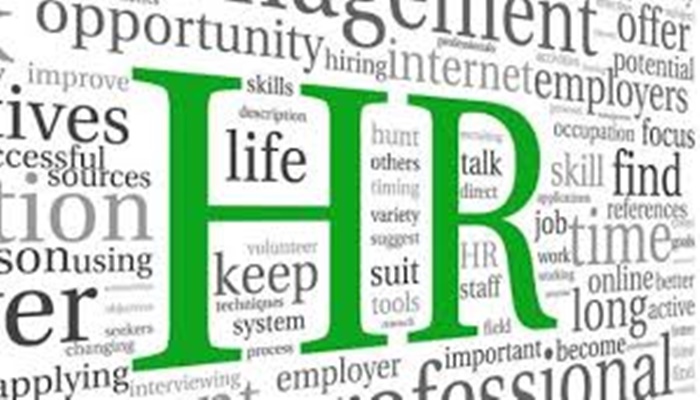I’ve spent the last decade helping organisations evolve their people practices and if there’s one thing I know for sure, it’s this: Workforce dynamics are changing. Rapidly. Irreversibly.
Much of this transformation is being driven by Gen Z, who are not only redefining how we work but why we work.
For them, mental well-being, purpose, flexibility and authenticity are non-negotiables.
The traditional 9-to-5 grind doesn’t resonate anymore. Instead, they favour work models that prioritise balance, autonomy, empowerment, learning and real-world impact.
They’re also entering the workplace during a time of economic uncertainty, inflated costs of living and rising burnout across industries. Unlike their predecessors who tried to conform to broken systems, Gen Z is choosing to confront them head-on.
Here are 10 workplace trends shaped by Gen Z that are actively promoting healthier work-life dynamics — and why organisations must pay attention.
1. Micro-retirement: Rest now, not just later
Unlike previous generations who waited until their 60s to retire, Gen Z is embracing ‘micro-retirements’ — intentional breaks taken throughout their career to travel, upskill or simply rest.
It’s not about laziness; it’s about sustainability. They’re questioning the logic of working non-stop for decades only to ‘live’ later.
These breaks help prevent burnout and bring fresh perspectives when they are back at work.
2. Unbossing: Dismantling hierarchies
Gen Z thrives in collaborative spaces, not hierarchical chains of command.
The ‘unbossing’ movement encourages leaders to become mentors and facilitators, rather than controllers.
By decentralising decision-making and trusting employees to lead, companies can build cultures of accountability and innovation.
3. Micro-shifts: Flexible, human work hours
The 9-to-5 structure feels outdated to this generation.
Many are advocating for micro-shifts — short, flexible work periods designed around energy levels, personal responsibilities or caregiving needs.
This model supports parents, caregivers, students and those living with health conditions.
It’s also a smart way to boost productivity by aligning work with when people feel their best.
4. Remote and hybrid work is here to stay
Gen Z has come of age with technology at their fingertips.
Remote work is second nature. More importantly, they view flexibility as a sign of trust.
Hybrid models allow them to build routines that support mental and physical health — reducing commute stress, increasing family time and supporting neurodiverse needs.
5. Mental health isn’t optional
Gen Z talks openly about therapy, burnout and mental health struggles. They expect their employers to do the same.
Whether it’s through mental health days, counselling services or simply creating psychologically safe spaces to speak up, mental wellness is no longer a side note; it’s central to retention and performance.
6. Purpose over paycheck
This generation doesn’t just want a job, they want a cause they can connect with.
They are more loyal to companies that walk the talk on sustainability, social justice, diversity and ethics.
For organisations, this means building workplaces where people feel they’re part of something bigger than just a bottom line.
7. Demand for real diversity and inclusion
Tokenism won’t cut it anymore.
Gen Z is asking: Who’s at the table? Whose voices are heard? Are LGBTQ+ employees welcomed and truly supported? Are accessibility needs being met?
They expect a visible, measurable commitment to diversity, equity and inclusion, from the boardroom to hiring panels.
8. Learning is ongoing, not occasional
Gen Z knows the world is changing fast and they want to stay ahead. They actively seek mentorship, feedback loops and upskilling opportunities.
If a workplace stagnates, so will their interest.
Learning must be integrated into the flow of work; it should not be limited to once-a-year workshops.
9. Radical transparency
This generation grew up on Google and social media. They expect access to information and open dialogue.
Opaque leadership styles feel out of place.
Gen Z wants to know where the company is headed, how decisions are made and how they can grow within the system.
10. Integration, not balance
Gen Z isn’t looking to balance work and life; they want integration.
Work is a part of their identity but it should harmonise with their values, passions, relationships and wellness.
This may mean working from a hill station, taking a midday therapy session or attending an online course during breaks. And that’s okay.
Gen Z is not here to follow outdated norms; they are here to rewrite the rules. And truthfully, we’re all better for it.
These trends are not fads. They are windows into a healthier, more humane way of working.
To attract, engage and retain this generation, organisations must evolve.
Leaders need to unlearn and relearn. Structures need to be remoulded. Not just in perks or branding, but in mindset, policies, and culture.
Let’s listen. Let’s adapt. And most importantly, let’s lead with empathy.
Source – https://m.rediff.com/getahead/report/ten-ways-gen-z-is-transforming-workplaces/20250527.htm




















